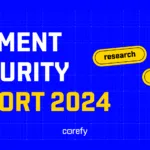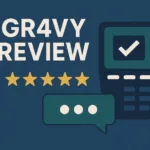What is really payment orchestration? We asked exactly Denys Kyrychenko, CEO of Corefy. Like in any orchestras, you need a chief conductor when it comes to payments. For instance, organising things like payment authorisation, transaction routing, or settlement. This is the orchestration that many businesses so desperately need.
Tell us more about Corefy. What is your elevator pitch?

Corefy is a universal feature-rich payment orchestration platform for online businesses and payment institutions. The company was created in 2018 with a mission to provide a platform for any size of business to manage payment processes. We integrate payment providers and acquirers worldwide to bring a unified communication, control, and management interface. Our technical platform provides feature-rich functionality that connects and manages payment services, initiates, processes transactions, collects and analyses payment data, and much more.
We aim to centralize and standardize online payment processing, improve visibility and control over transaction flows, mitigate risks, and improve overall business efficiency. We see the beauty in simplifying the complex, so clients can run their online business without obstacles using cloud infrastructure, omni- and cross-channel, and full-service payment solutions for both corporate and institutional clients.
What is your background and what is the story behind the company?
I sarted working in fintech more than 15 years ago. I developed a mobile application for RuPay when I was a student which was rebranded afterwards and is known as RBK.Money. I did not have any prior experience. As a consequence, it took me around 4 months to create a mobile wallet on SymbianOS which made it available on all smartphones on the market . At that point in time, there was no trace of iOS and Android. Later, I earned some hands-on experience working with pioneers in the fintech industry in Eastern Europe — projects like RuPay, WebMoney, RBK. Money, Monexy, that delivered truly cutting-edge solutions to the market.
As a CTO of Interkassa, I reached the next milestone — developed a payment aggregator. Together with the partner, we acquired Interkassa to launch it as a stand-alone business. I gained knowledge and understanding of online payments and successfully launched multiple PSPs and e-wallet solutions.

I left Interkassa to start my own fintech project. Together with Dmytro Dziubenko and Den Melnykov, Co-founders of Corefy, we experienced the ins and outs of the industry. We realised that rapid technological development has drastically changed consumer habits, competition, business activities, and other areas. Moreover, the payment industry had grown more fragmented, becoming too complex. These changes and the challenges they raised for businesses prompted us to create Corefy.
What is payment orchestration really about?
A payment orchestration platform is a technical solution that allows online businesses to handle payments. For me, the whole concept of payment orchestration, and Corefy in particular, resemble Lego in payments. We created a platform that allows businesses to customise a payment solution according to their needs.
Payment orchestration is about security, convenience and effectiveness.
Orchestration platforms need to meet high industry standards of security, integrity and stability by utilizing data encryption, web application security tools, physical and network security measures.
Orchestration platforms integrate a bunch of payment providers and acquirers. One integration with such a platform makes clients all set for whichever market they decide to enter or expand in.
At Corefy, we also provide intelligent tools for cost optimisation, risk mitigation, and more streamlined and efficient performance, saving clients’ time and driving their conversion rates.
What do you see as the main challenges in the payments industry right now?
We witness an explosive increase in the number of different payment methods. On the other side, there’s a lack of standardising. Both factors exponentially increase the complexity of systems that ensure the functioning of the industry. That’s the main industry challenge, as for me.
Any innovation in fintech more broadly that you are really excited about?

I’m excited about artificial intelligence. The world is still about to uncover more possibilities of this high-potential technology, including its broader application in the payment industry. It can bring transactions processing and anti-fraud systems to a new level.
For example, the neural network can analyse the dependence of the conversion from all available parameters to find the optimal route for payment traffic. Today, it is mainly performed manually.
Any plans for the future or product roadmap you want people to know about?
Our plans for the nearest future are pretty ambitious. In the first place, we plan to increase our global presence and expand to new markets. Our company already has 5 global locations, and we plan further expansion in North and South America, with new offices in the US and Brazil.
Today our team is actively building the holistic ecosystem of products and services, including ones for reconciliation, fraud prevention, terminals, and others. We believe that the extension of our product line will boost not only our clients’ experience but the whole fintech industry.
What’s more, we allocate all our resources to become the industry leader in the next few years. We do our best to stay pioneers in our domain and innovators in product development.
















